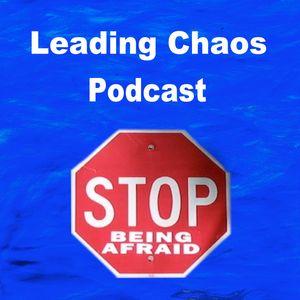
Leading Chaos Podcast
Leading Chaos Podcast
069: Cultivating Inspiration

069: Cultivating Inspiration
Description
The goal of this episode is to affirm our ability to “cultivate inspiration”, by looking at what inspires us and what inspire others.
This episode #69 and the lesson plan are dedicated to Jeppe de Lange.
The word “Inspiration” has its roots in the Latin word inspiratus – meaning to Breathe into – to inspire.
What can we do to help us breathe into a crisis?
- Exhale, (which we teach in Response) helps us breathe into a crisis. The Exhale creates a pause in action and can redirect our thoughts from one of panic to clarity and reason.
- The Pause and Exhale is done while asking “Am I safe?” This action encourages the intervener to take in the scene at hand and to also role model a calm, compassionate, and professional demeanor.
- The use of an Exhale can help motivate, encourage, and influence others – it is a form of Intentional Role Modeling.
What is Intentional Role Modeling” Consciously acting in a manner that displays a specific behavior or action.
Intention can be both benevolent and malicious, today we are working on benevolent Intentional Role Modeling. Benevolent acts can inspire us and others, making Intentional Role Modeling also Inspirational Role Modeling.
Intentional Role Modeling with benevolence as the lead role modeled”.
Inspiration is feeling engaged, uplifted, and motivated by someone or something you witnessed.
Positive Emotions help us build upon our engagement in daily life. At a baseline level, they motivate us to get up each morning and participate in life. Inspiration at its highest level, can be transformational.
The “Broaden and Build Theory” was developed by Barbara Fredrickson’s in the late 1990’s and is commonly referred to in Positive Psychology.
Positive Psychology is “the scientific study of what makes life most worth living.
Learn more about the Response Curriculum at http://www.responsetrainings.com